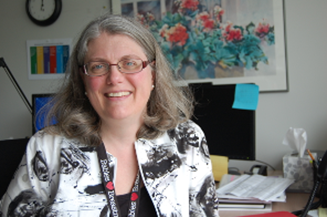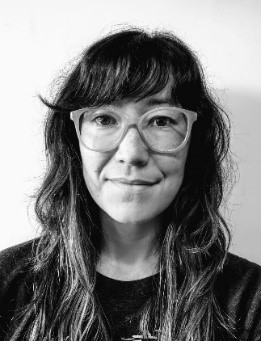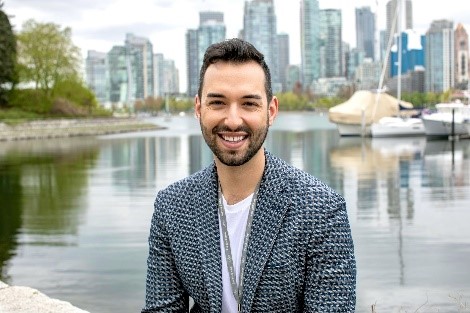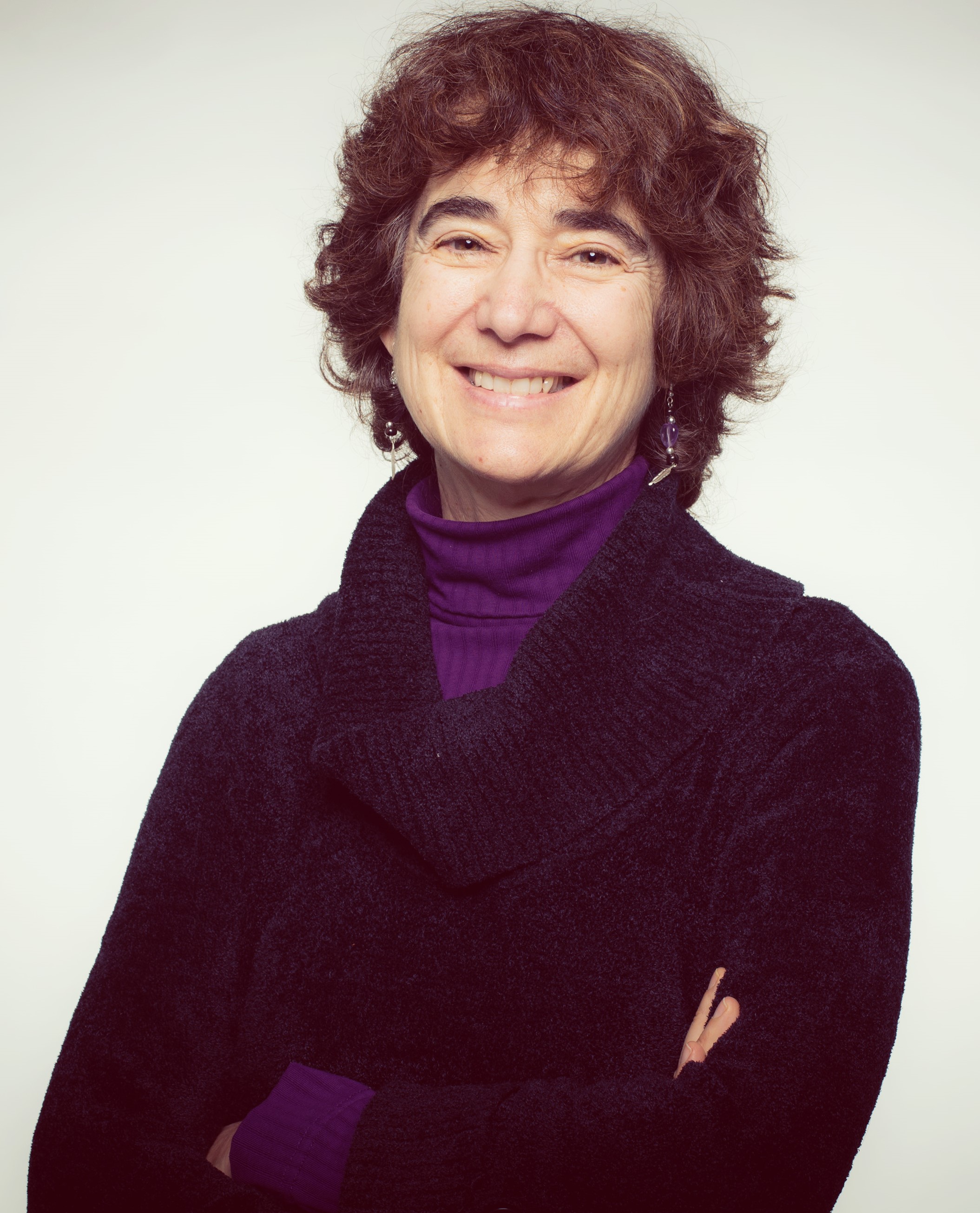Bringing a New Lens: Dr. Brenda Wagner and Dr. Jennifer Beaveridge aim to drive change as new co-chairs of HAMAC
Dr. Jennifer Beaveridge & Dr. Brenda Wagner, HAMAC Co-Chairs

 In June 2021, Dr. Brenda Wagner and Dr. Jennifer Beaveridge were announced as the new co-chairs of the Health Authority Medical Advisory Committee (HAMAC), which oversees the work of medical staff, quality of care, and the development of Medical Staff human resource plans.
In June 2021, Dr. Brenda Wagner and Dr. Jennifer Beaveridge were announced as the new co-chairs of the Health Authority Medical Advisory Committee (HAMAC), which oversees the work of medical staff, quality of care, and the development of Medical Staff human resource plans.
Becoming co-chairs of HAMAC was a natural progression of their respective professional journeys. Dr. Wagner is an obstetrician and gynecologist, so is used to a high-risk practice. She's well-versed in the need for clear process and systems, along with the value of quality improvement. Her new role as a HAMAC co-chair, she says is an opportunity to prioritize the importance of the systems which medical staff work within, and how that influences the quality of care given to patients.
Dr. Jennifer Beaveridge, is a Nurse Practitioner who has worked in primary care/community in Vancouver with a focus on vulnerable complex populations for the past sixteen years. Jennifer is passionate about addressing health and social inequities, and ensuring access to quality for all people. Prior to this new position Jennifer was the Regional Department Head of NPs. Being appointed as a HAMAC co-chair, she says, allows her to step beyond representing only one profession, and to holistically look at the quality of care of all medical staff utilizing her knowledge and experience community. She is passionate about quality care and believes that this role is an opportunity to be proactive about making the changes and leading quality initiatives.
“This is my opportunity to actually work with leaders and medical staff to be the change itself," Dr. Beaveridge says.
They both deeply understand the importance of relationships through listening to the concerns of others, and how that is the catalyst that drives change within an organization.
“We have been asked to create change, and we want to do that within the context of relationship. So Jenn and I are working on our relationship, and we're working on our relationships with all the people we're working with as well. We feel like we're going to be more successful as leaders if we can do that," says Dr. Wagner stated.
This marks the first time that two women have been chosen as HAMAC co-chairs, and both Dr. Wagner and Dr. Beaveridge believe that this is a positive step to creating an environment that fosters diversity, equity, and inclusion (DEI).
Dr. Beaveridge is also celebrating another milestone in her new role, as the first Nurse Practitioner, non-physician, to be the co-chair of HAMAC. She believes that this will bode well for VCH because it adds a different perspective on the governance and quality of care of medical staff.
“Each medical staff profession (Nurse practitioners, physicians, Midwives and Dentists) bring a different and unique lens perspective. This is an amazing opportunity for Brenda and I to bring our skills, lenses and expertise together. I think we both have amazing skillsets and they're going to complement each other well," Dr. Beaveridge says.
“I'm hoping that Jennifer and I can provide some mentorship and inspire a diverse group of individual who want to be in leadership," says Dr. Wagner. She also recognizes that there have been some experiences in the workplace where DEI principles have not been prominent. Sharing the role with another woman and an NP will magnify the importance of DEI, hopes Dr. Wagner, as well as demonstrating the leadership opportunities available at VCH.
Having two women from different professions that share the same position adds multiple perspectives and styles of leadership, which is crucial for overseeing all medical staff. They both know that there is a wealth of knowledge and experience in the medical staff at VCH, and are striving to amplify as many voices as possible.
Caring for a Vulnerable Population
Dr. Jade Koide, MD

The Downtown Eastside (DTES) contains one of Vancouver's most vulnerable populations for a multitude of reasons. The lack of access to healthcare contributes significantly to this risk, and residents lack up-to-date screenings for several cancers, including cervical cancer. Dr. Jade Koide works at the Heatley Community Health Centre (HLY), situated in the heart of the DTES. She has a passion for addressing the psychological and social determinants of health and strives to increase the cervical cancer screening rates for patients in the DTES.
In the DTES, getting cervical cancer screening may not be a priority, or even on women's radar because they're in daily survival mode finding food and a place to stay at night. Many also suffer from mental health issues and sexual violence-related trauma, making cervical cancer screening hard to talk about.
Through the VCH/PHC Physician Led Quality Improvement Program, Dr. Koide identified that to increase awareness for cervical cancer, new ways to engage with DTES residents were needed.
Her team created a patient survey to understand how to foster an environment for patients to feel comfortable discussing sexual and reproductive health. They designed a gender-neutral patient handout on cervical cancer and the purpose of the cervical cancer screening Papanicolaou (Pap) test.
The team went through individual patient lists to identify those folks who might be amenable to an outreach visit from a nurse and peer support worker. These visits were intended to provide education, build trust, and to encourage patients to attend the clinic for reproductive health care services. They also learned how to best use tools like electronic medical records (EMR) to set reminders and keep the previous test results organized.
It has been a success, though there's much more work to be done. Through their efforts, the team has steadily been performing more cervical cancer screening, and now about half of eligible folks are up to date on their tests.
Undertaking this project during the pandemic hasn't made things easier as much of the healthcare providers' time and resources have been heavily allocated to fighting COVID-19.
Dr. Koide recalled, “A lot of the times, my colleagues were like, 'Why are we even talking about Pap tests when there's a pandemic happening?' So it was sort of addressing those competing interests."
It's a complex project, and she is thankful to have a diverse team at HLY to tackle each element from different angles. She credits the peer support workers, nurses, social workers, and counsellors who are committed to working together.
Having a diverse team all at one clinic was beneficial. “It really reduces the barriers that people experience in having to go to multiple places to receive healthcare, whether it's mental healthcare, physical healthcare, or social wellbeing," Dr. Koide emphasized.
Moving forward, sustainability is critical, especially when working in a unique environment with patients who have experienced trauma. “In terms of sustainability, I think that's the biggest challenge because although we're a team, we all have our own styles of work. I hope we utilize the tools we learned this year and develop this new preventive health form in EMR, so that we can keep track of the different cancer screening and other elements of preventive health," she said.
Dr. Koide also said meetings and frequent check-ins with colleagues are critical both in a group and individual setting, as it maintains relationships and preserves accountability.
The work that Dr. Koide and her team have done at HLY has been crucial in caring for a vulnerable population in the DTES. The centre is a sort of home for those who may not have one, and Dr. Koide is very excited to be working there, ensuring that the care is high quality, and as patient-centered as possible.
The Physician-Led Quality Improvement (PLQI) Initiative at VCH and PHC is a province wide initiative and a partnership between Vancouver Coastal Health, Providence Health Care, and the Specialist Services Committee . PQI is a flagship initiative of the Specialist Services Committee, one of four Joint Collaborative Committees funded by Doctors of BC and the BC government. PQI has supported this initiative and many others that are making a real difference to promote innovation in our health care system. For more information, go to https://sscbc.ca/physician-engagement/regional-quality-improvement-initiative. Family doctors participating in PQI are supported by sessional funding from the General Practice Services Committee.
Dr. Jade Koide is a Family Physician at Vancouver Coastal Health.
Facing a Different Kind of Vaccine Hesitancy
Dr. Justin McGinnis, Gynecologic Oncologist
 As COVID-19 becomes more manageable in Canada through the success of vaccinations, we have to turn our attention to another prevalent disease: influenza. Influenza was the most common infection-related cause of death in Canada, until the emergence of COVID-19. Despite its viral rampage across the world over the past two years, Dr. Justin McGinnis, Gynecologic Oncologist, believes that influenza will remain a very common source of morbidity for cancer patients in Canada. Cancer patients receiving chemotherapy are highly susceptible to contracting influenza, which can lead to secondary pneumonia, ICU admission, and death.
As COVID-19 becomes more manageable in Canada through the success of vaccinations, we have to turn our attention to another prevalent disease: influenza. Influenza was the most common infection-related cause of death in Canada, until the emergence of COVID-19. Despite its viral rampage across the world over the past two years, Dr. Justin McGinnis, Gynecologic Oncologist, believes that influenza will remain a very common source of morbidity for cancer patients in Canada. Cancer patients receiving chemotherapy are highly susceptible to contracting influenza, which can lead to secondary pneumonia, ICU admission, and death.
Prevention is the best solution, but, as the COVID-19 vaccination efforts have shown, jabbing a small needle into someone's arm is only one step in a process.
In the summer of 2020, McGinnis realized that many cancer patients presenting to the BC Cancer Agency (BCCA) were at risk of contracting the flu and hadn't been vaccinated because routine vaccinations were not a priority. He identified that an in-house flu vaccination clinic was critical for patient health and safety.
He had to identify and overcome some hurdles to devise a program that would vaccinate cancer patients,. It became clear that healthcare providers weren't asking cancer patients if they received the flu vaccine. Many of the patients that McGinnis worked with came from various areas of BC and Yukon, and travel to Vancouver for their cancer treatment. As they arrived at Vancouver General Hospital for their cancer surgery, there was no communication from the healthcare provider to the patient regarding flu vaccines.
The other major obstacle was that the BC Cancer Agency did not have a vaccination program, and their pharmacies did not stock flu vaccines.
By identifying these logistical barriers, McGinnis and his team created an inpatient vaccine program at VGH. Once patients were admitted to the hospital, healthcare providers talked to them about the flu vaccine, documented their vaccine history, and administered a pre-printed order (PPO) for influenza vaccination prior to discharge.
The program – which ran from November 1, 2020 to February 28, 2021 – resulted in a five percent overall increase in the influenza vaccination rate and rates were on average four times higher than the national average as reported by the Public Health Agency of Canada. McGinnis and his team saw this as a huge success given that this is the first year of the program.
Despite the overall success of the program, vaccine hesitancy was identified as the major barrier to vaccination. Some believed they don't need it because they never had the flu, and others viewed the flu vaccine as a lower priority compared to the various appointments and treatments for their new diagnosis of cancer.
Health care workers across the cancer care team need to support vaccinations for the campaign to have greater success in the future.
“It takes vaccine advocates. It doesn't have to be a physician, it really can be anybody to have that conversation with patients and make that firm recommendation," says McGinnis. “By emphasizing the severity of getting some of these infections, including death, I think you can convince people that it's important."
McGinnis learned through the project that care providers at VGH are really eager to engage in quality improvement and do as much as possible to improve patient outcomes. When working with people who share the same mindset, every small change can make a big impact, he believes. “By introducing very simple changes such as the pre-printed order set that takes patients only a couple of minutes to fill out, can induce quite a bit of change. Thirty percent of all vaccinated people in our study were done through this simple program," McGinnis concluded.
This was his first year working in B.C., and McGinnis was unfamiliar with the many layers of administration and overall structure of the medical team at the Vancouver Acute Community of Care. He credits the VCH/PHC Physician Led Quality Improvement team for their significant contribution to the success of the project, as they helped him connect with others who also had a passion for quality improvement in Vancouver. The partnership with VCH Team Based Quality Improvement (TBQI) clinicians helped drive this project forward. “I can see from conversations that I'm going to have a great community of people to collaborate with going forward."
Vaccine hesitancy was around long before the COVID-19 pandemic, and this year may have magnified its effects. It's a problem with a long history, regardless of vaccine. Healthcare professionals will continue to wrestle with it, but projects like McGinnis' that make access to vaccines easier, may help increase patient participation.
The Physician-Led Quality Improvement (PLQI) Initiative at VCH and PHC is a province wide initiative and a partnership between Vancouver Coastal Health, Providence Health Care, and the Specialist Services Committee . PQI is a flagship initiative of the Specialist Services Committee, one of four Joint Collaborative Committees funded by Doctors of BC and the BC government. PQI has supported this initiative and many others that are making a real difference to promote innovation in our health care system. For more information, go to https://sscbc.ca/physician-engagement/regional-quality-improvement-initiative.
Dr. Justin McGinnis is a Gynecologic Oncologist at Vancouver Coastal Health.
COVID-19 Transmission rates among Health Care Workers Similar to the General Population despite Variants of Concern
 Vancouver Coastal Health Research Institute researcher, Dr. Annalee Yassi leads Medical Staff Occupational Safety and Health, the occupational health program established at Vancouver Coastal Health (VCH) to protect medical staff.
Vancouver Coastal Health Research Institute researcher, Dr. Annalee Yassi leads Medical Staff Occupational Safety and Health, the occupational health program established at Vancouver Coastal Health (VCH) to protect medical staff.
Read the full story here.

